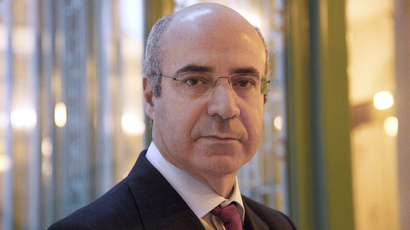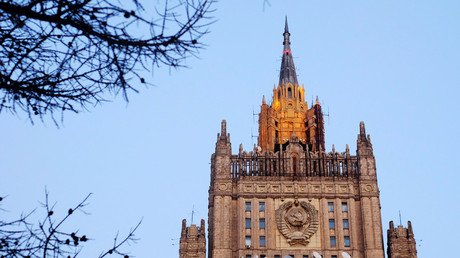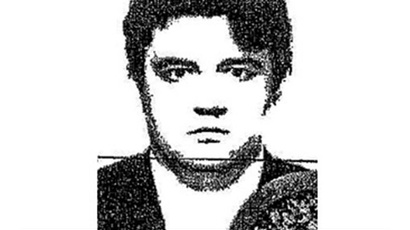'He was not killed, he died': Kremlin critic’s Magnitsky movie premiers in US, exposing Browder
Despite threats of a libel lawsuit, a documentary about the Magnitsky case by a prominent critic of the Russian government has been shown in Washington. The film rejects the narrative about the case accepted in the West, on which the US Magnitsky Act is based.
The film, titled ‘The Magnitsky Act – Behind the Scenes’, was presented to the public for the first time on Monday at the Newseum, a private museum dedicated to the news industry and freedom of speech in Washington, DC. The two-hour production is part documentary, part dramatization of the events that surround the death of Russian lawyer Sergey Magnitsky six years ago.
Magnitsky worked as an accountant for US-British investor William F. Browder, who made millions in Russia during the 1990s, but was later accused of tax evasion and fled the country. The lawyer was detained by the Russian police as part of a separate fraud investigation and died in police custody in November 2009.
Browder claimed that Magnitsky had been investigating corrupt police officers and was thrown into jail and murdered by them. He declared a crusade against what he called endemic corruption in the Russian government and lobbied across Europe and the US for punishment of the individuals whom he accused of involvement in Magnitsky’s death.
In 2012 the US passed an act named after the Russian lawyer, which imposed sanctions against 40 Russian citizens – a move that Moscow saw as blatantly anti-Russian, and apparently retaliated against by banning the adoption of Russian orphans by US citizens.
‘Story of coming together with lie, selfishness & cynicism’
Director Andrei Nekrasov struggled for months to have his controversial work shown to the public. Scheduled screenings in three European venues, including the European Parliament, were canceled because Browder threatened multimillion-dollar libel lawsuits against producers or would-be broadcasters of the film.
Browder opposes the film because he believes it to be “a calculated attempt to harm our campaign and to make people doubt the legacy of Sergey Magnitsky,” as he told euobserver.com back in April.
Newseum was threatened in the same way, but rejected the pressure, saying that publishing Nekrasov’s film was an issue of freedom of speech.
“This is a core issue about getting points of view into the public domain,” investigative journalist Seymour Hersh, who moderated the event, told the audience before the screening.
Nekrasov says he wanted to make a docudrama film about Magnitsky ever since he heard of his story. He received funding for the project from eight European film foundations and state broadcasters and got in touch with Browder as part of his work.
But he found inconsistencies in the evidence presented by Browder’s campaign to back his story, saying most of it was circumstantial at best. When he confronted the businessman about them, he said Browder broke off all contact and started to oppose the film.
The director believes that the narrative of Magnitsky as the brave whistleblower killed by corrupt Russian cops, as it was accepted in the West, is a scam by Browder, who capitalized on the lawyer’s death to shield himself from all past and future accusations from Russian law enforcement, which he could claim to be politically motivated.
"I believe Magnitsky died," Nekrasov told journalists in response to a question on whether he believed the lawyer was killed or died. "Questions remain, but the fact that he was not killed, as Mr Browder says, by the same people who investigated his case and had a 'motive' to make him silent as a whistleblower – this is totally certain."
“The story of Magnitsky turned out to be made-up,” Nekrasov told journalists as he commented on revelations he made during the making of his film. “I saw facts that do not add up, that prove that the story of Magnitsky was faked by Browder,” he added.
Documents show that the evidence presented by Browder as proof that Magnitsky was a whistleblower was in fact a transcript of Magnitsky’s interrogations, which were conducted before he made his statements, Nekrasov claimed, stressing that police officers had no motive for killing Magnitsky as he did not expose them.
“There is no evidence that he [Magnitsky] was killed or even was beaten,” the film director told journalists.
“I am a critic of the Russian authorities … and I continue to be this critic, but in this particular case, the West made a mistake by adopting the Magnitsky Act and the Magnitsky resolutions, as they are based on a made-up story,” Nekrasov said, adding that “it is not in the interests of the US to remain trammelled by prejudice against Russia.”
“I thought I was filming about great the whistleblower Magnitsky. But it became my story of coming together basically with a lie, and with a lot of selfishness, and cynicism,” Nekrasov told RT in May, when the screening of the film was cancelled at the last moment in Brussels.
The director’s view didn’t go well with some of the first viewers of the film, including Russian opposition politicians and rights activists.
“You have become a foot soldier of the propaganda war,” exclaimed Ilya Yashin, a veteran opposition figure in Russia. “I am ashamed for you, Andrei. You will have to live with that.”
The outcry was perhaps to be expected. Nekrasov himself has been a critic of the Russian government for years. Some of his earlier works explored alleged involvement of the Kremlin in very serious issues, including the Chechnya war, the murder of Aleksandr Litvinenko, corruption in security agencies and others.
His documentaries, both political and otherwise, were praised by critics and won a number of awards, including the prestigious German Grimme-Preis award. Georgia named him person of the year 2009 for a film about the 2008 war against Russia.
“I am a critic of the Russian regime and still am. I had a sort of political affiliation to Browder and his friends,” Nekrasov said of his latest film. “It goes against your ideology and your worldview to say that actually the Russian cops did not kill Magnitsky, the Russian cops didn’t steal the money. Russia is still a very corrupt country, but in this case it was different.”















